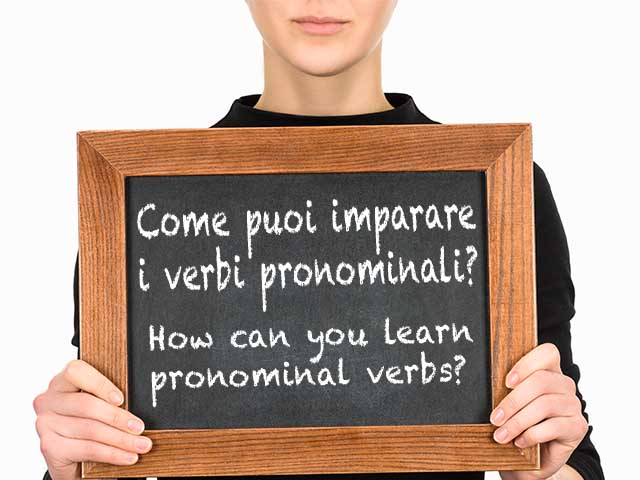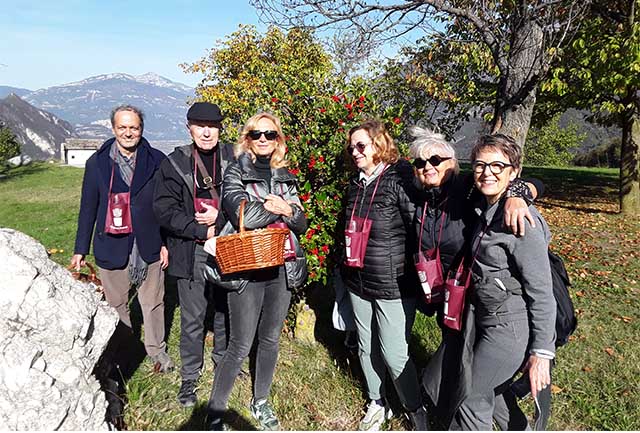
I verbi pronominali italiani: Mettere insieme i pezzi del puzzle
Italian Pronominal Verbs: Piecing Together the Puzzle to Reveal the Big Picture!
I verbi pronominali italiani: impariamo ad usarli!
Italian Pronominal Verbs: Learn How to Use Them!
Ah, i verbi pronominali! Sono quei piccoli enigmi grammaticali che fanno alzare le sopracciglia agli studenti di italiano. A prima vista, possono sembrare complicati e un po’ intimidatori, ma non temete: una volta che li avrete capiti, diventeranno i vostri migliori amici per esprimervi in modo più naturale e idiomatico.
Ah, pronominal verbs! They’re those little grammatical puzzles that make Italian learners raise their eyebrows. At first glance, they might seem tricky and a bit intimidating, but fear not: once you understand them, they’ll become your best friends for speaking Italian naturally and idiomatically.
Immaginate di avere una chiave segreta che sblocca un linguaggio più vivace e fluido, pieno di espressioni che danno vita alle conversazioni. Questo è ciò che fanno i verbi pronominali. Siete pronti a scoprire come usarli senza perdervi? Allora, andiamo!
Imagine having a secret key that unlocks a livelier, more fluid way of speaking, full of expressions that bring conversations to life. That’s what pronominal verbs do. Ready to learn how to use them without getting lost? Let’s go!
Cosa sono i verbi pronominali?
What Are Pronominal Verbs?
I verbi pronominali in italiano sono verbi che includono uno o più pronomi (ci, la, ne, ecc.) per creare significati idiomatici che spesso differiscono dal verbo base. Questi pronomi non si riferiscono necessariamente a un oggetto o a una persona specifica, ma modificano il significato del verbo in modo unico.
Pronominal verbs in Italian are verbs that include one or more pronouns (ci, la, ne, etc.) to create idiomatic meanings that often differ from the base verb. These pronouns don’t necessarily refer to a specific object or person but modify the verb’s meaning in a unique way.

Diamo un’occhiata al significato idiomatico di bersela.
Let’s take a look at the idiomatic meaning of Bersela
I verbi pronominali in italiano sono verbi che includono uno o più pronomi (ci, la, ne, ecc.) per creare significati idiomatici che spesso differiscono dal verbo base. Questi pronomi non si riferiscono necessariamente a un oggetto o a una persona specifica, ma modificano il significato del verbo in modo unico.
Pronominal verbs in Italian are verbs that include one or more pronouns (ci, la, ne, etc.) to create idiomatic meanings that often differ from the base verb. These pronouns don’t necessarily refer to a specific object or person but modify the verb’s meaning in a unique way.
Bersela
The expression means to believe a lie.
Non Bersela
To not believe something. To not “buy it.”
Ho detto agli amici che ho fatto il puzzle da sola, ma non se la sono bevuta!
I told my friends I put the puzzle together, but they didn’t buy it.
In realtà sono state le mie sorelle a farlo!
Actually, it was my sisters who did it.
A cosa si riferisce il pronome la in questa frase? A niente! È l’espressione completa che significa: credere a una bugia.
What does the pronoun la refer to in this sentence? Nothing! It’s the entire expression that means: to believe a lie.

Mettere insieme i pezzi del puzzle — Andarsene e Farcela
Puzzling together — Andarsene and Farcela
Andarsene
To leave / To go away
Me ne vado perché è tardi!
I’m leaving because it’s getting late!
Se ne è andato senza dire una parola.
He left without saying a word.
Andare (to go): The base verb.
Si: Reflexive pronoun, making the action personal
(“to remove oneself”).
Ne: Pronominal particle indicating “away” or “from here.”
Andarsene is conjugated by combining the reflexive pronoun (mi, ti, si, ci, vi, si) with the correct form of andare and the pronoun ne.
| Pronoun + Verb | Full Form | Translation |
|---|
| Io me ne vado | Me ne vado | I’m leaving (from here). |
| Tu te ne vai | Te ne vai | You’re leaving. |
| Lui/Lei se ne va | Se ne va | He/She is leaving. |
| Noi ce ne andiamo | Ce ne andiamo | We’re leaving. |
| Voi ve ne andate | Ve ne andate | You all are leaving. |
| Loro se ne vanno | Se ne vanno | They’re leaving. |
Farcela
To manage or succeed at doing something.
Ce l’ho fatta!
I did it!
Ce la faccio a finire questo lavoro in tempo!
I can manage to finish this job on time!
Non ce l’ho fatta a svegliarmi presto stamattina.
I couldn’t manage to wake up early this morning.
Fare (to do/make): The base verb.
Ce: A pronoun that reinforces the action and gives it a personal tone.
La: Refers to the “task” or “challenge” being managed
(though it’s not explicitly named).
Farcela is conjugated with reflexive pronouns (mi, ti, si, ci, vi, si) and the auxiliary verb avere in compound tenses. The ce and la are fixed components.
| Pronoun + Verb | Full Form | Translation |
|---|
| Io ce la faccio | Ce la faccio | I can do it. |
| Tu ce la fai | Ce la fai | You can do it. |
| Lui/Lei ce la fa | Ce la fa | He/She can do it. |
| Noi ce la facciamo | Ce la facciamo | We can do it. |
| Voi ce la fate | Ce la fate | You all can do it. |
| Loro ce la fanno | Ce la fanno | They can do it. |

Non fartela scappare: Impara i verbi pronominali con me!
Don’t Miss Out: Learn Pronominal Verbs with me!
Per affrontare i verbi pronominali, è necessario prima riconoscerne il significato idiomatico. Ci vuole un po’ di pratica e memorizzazione. L’altra grande sfida è la posizione dei pronomi nella frase, che a volte può sembrare un vero rompicapo. Per questo, lavorare con un insegnante è sempre utile per capire i contesti specifici in cui usarli.
To tackle pronominal verbs, you first need to recognize their idiomatic meaning. It takes a bit of practice and memorization. The other big challenge is the position of pronouns in a sentence, which can sometimes feel like a real puzzle. For this, working with a teacher is always helpful to understand the specific contexts in which to use them.
La mia amica Irene, che vive in Umbria, offre corsi online a ritmo libero, tra cui un seminario approfondito sui verbi pronominali.
My friend Irene, based in Umbria, offers self-paced online courses, including an in-depth seminar on Pronominal Verbs.
Impara l’italiano con Melissa! Partecipa a lezioni online di conversazione e lingua per migliorare le tue competenze e la tua sicurezza nell’italiano.
Learn Italian with Melissa! Join online conversation and language lessons to elevate your Italian skills and confidence.
Vuoi esercitarti la lingua con Melissa in Italia?
Want to Practice in Italy with Melissa in Italy?
Insieme festeggeremo la cultura italiana e impareremo l’italiano sia in aula che fuori, durante cene organizzate ed escursioni. I miei studenti adorano le conversazioni improvvisate con me e i miei amici italiani. È un’esperienza completa, ragazzi — e se ve la sentite, possiamo persino tuffarci nei verbi pronominali!
Together we’ll celebrate Italian culture and learn Italian in the classroom and beyond, during organized dinners and excursions. My students love the impromptu conversations with me and my Italian friends. It’s a complete experience, ragazzi — and if you’re up for it, we can even dive into pronominal verbs!

Parliamo della saggezza di imparare l’italiano con Melissa!
Let’s talk about the wisdom of learning italian with Melissa!
Take a look at the Studentessa Language Immersion Programs and the
Italian Homestay Language Immersion Vacations offered through the site.










